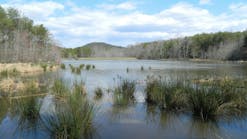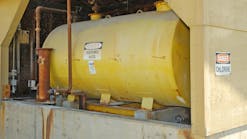For the past few years, the water and wastewater industry has been preparing to lose a significant portion of its workforce to retirement. According to the 2010 Water Sector Workforce Sustainability Initiative report from AWWA and the Water Research Foundation, “estimates place the anticipated loss of current utility employees at between 30 and 50 percent within the next 10 years.” And in far too many cases, years - even decades - of knowledge will go with them.
To address the impending “retirement bubble” and help attract new talent to the industry, the National Rural Water Association has announced the creation of the NRWA Workforce Advancement Center. It’s goal, according to NRWA CEO Sam Wade, is to “ensure a well-trained and capable water sector workforce to meet the increasing demands of the water industry.”
One of the Center’s flagship initiatives will be to develop the WaterPro Apprenticeship Program, a nationally recognized standard that will be registered with the U.S. Department of Labor (DOL).
“It will be nationwide and it will actually be open to any person in the water/wastewater industry or system that wants to sign up to receive an apprentice so they can participate in an earn-while-you-learn model of Workforce Development,” said Matthew Holmes, deputy CEO for the NRWA.
While many industries have apprenticeship programs, this will be the first for water and wastewater and it will be developed with technical assistance from the DOL.
Holmes acknowledged that navigating the bureaucracy of the federal government in order to get an approved program up and running is a daunting task, so having DOL’s assistance will be a huge asset. “We’ve been impressed with the folks at DOL because they tend to come from industry and they’ve already done this. They’ve seen it work and benefit the workforce in their area so we feel like they have a tremendous amount to offer us to help us make this program successful,” he said.
“We’re offering through the Registered Apprenticeship program to make this a nationally recognized program,” said David Gaither, regional executive assistant with the DOL’s Office of Apprenticeship. “When [candidates] complete the process, the individuals that finish will receive a certificate of training as a journeyman water treatment operator or wastewater treatment operator that is nationally recognized.”
According to Gaither, “most of these certificates are also worthy of articulation for college credits and going to a Registered Apprenticeship program also allows veterans to utilize their GI Bill benefits.”
The creation of the WaterPro Apprenticeship Program will also help address the need for increased skills and training in light of advancements in water treatment and supply technologies.
Robert Moore, general manager of the Marshall County Water Corporation (Okla.), saw the immediate benefit. “It would be very beneficial to have internship program bring in new hires and be able to get them trained in the proper techniques with the new regulations and the up-to-date technology that we have today. It’s different than it was even when I was trained.”
NRWA said it will take some time to develop the standards necessary to support the apprenticeship program, but over the next year, the organization plans to work directly with state associations to gather input.


